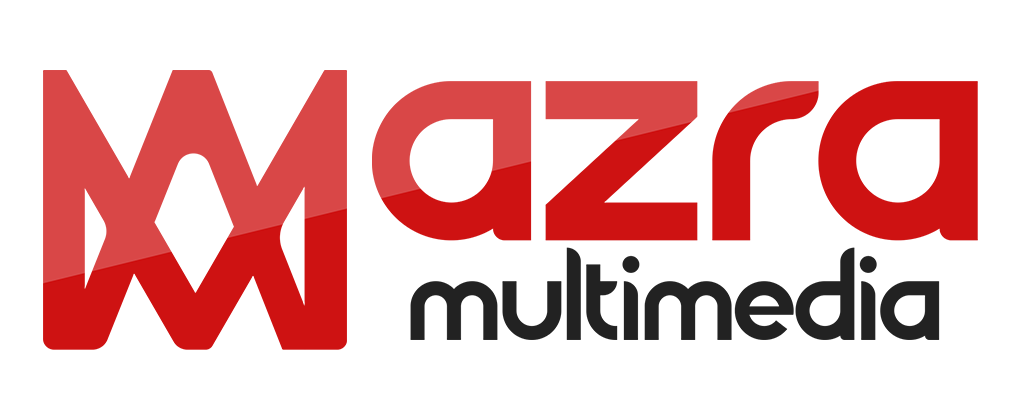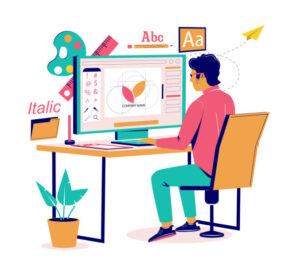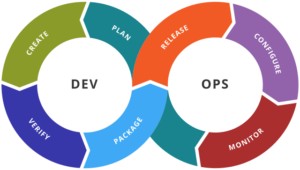Step by step guide on how to become a graphic designer For you to know how to become a graphic designer, you must be ready to be as patient as possible because creative works such as graphic designing entails a lot of patience. Below are the steps to follow Learn Graphic Design Principles You must first have a firm grasp of graphic design principles in order to work as a graphic designer. Well-made design is meticulously created. It calls for extensive planning as well as proficiency in the application of design theory and principles. The elements of lines, color, shape, space, texture, typography, scale, dominance and emphasis, and harmony are all important considerations for graphic designers. These components all affect a design and have the power to influence audience perception. Learn Key Graphic Design Tools A wide range of tools are used by graphic designers. They use graphic design software the most often. For most Graphic Designers, the industry standard is Adobe Creative Cloud. Since most design work can be created with Adobe PhotoShop, Illustrator, and InDesign, you should familiarize yourself with these programs. Training materials and user manuals abound and are easily accessible. You might want to look through Adobe’s tutorial series to get started. Take Up Personal Projects to Improve Your Graphic Design Abilities It’s time to put your newfound understanding of graphic design principles and tools into practice. Working on your own design projects is the best way to develop your abilities and become an expert with graphic design software. You can start by making mockups of logos and advertisements for actual or fictional businesses. Another option is to try redesigning an organization’s current designs; this is an excellent way to determine and cater to target markets. Offering your time to nearby nonprofits or companies is an additional choice. Provide your design expertise to these organizations to increase your practice and obtain practical experience. Create a Portfolio to Display Your Graphic Design Talents For any Graphic Designer, having a strong portfolio is imperative. You can include assignments from a course, personal projects, and professional projects in your portfolio. Prioritize quality over quantity. Since your portfolio serves as a prospective employer’s or client’s first impression, choose pieces that highlight your interests and design prowess. Another process on How To Become a Graphic Designer: Step-by-Step It’s crucial to first comprehend what a graphic design job would entail if you’re interested in learning how to become one. The art of telling a story through visual communication is called graphic design. Make use of text, graphics, and images to establish your brand and draw in your intended audience. You can work in a wide range of industries as a graphic designer, such as news, entertainment, and advertising (broadcast, digital, and print media). Develop your portfolio, put your graphic design skills to use, and find out more about joining this creative industry. Secondly, You should give careful thought to your goals, training, and creative and technical background if you want to work as a professional graphic designer or are considering a creative career in the field. Even though the graphic design industry offers a wide range of career options, it’s crucial to choose your path early in your college career. Once you’re in the workforce and pursuing your own career path, selecting the right coursework and earning the necessary credentials will help you advance your graphic design skills. Education, Training, and Qualifications to become a Graphic Designer Developing a visual portfolio of your high school work to highlight your graphic design abilities is just one of the many preparations needed when planning your further education, even though having a strong sense of creativity, style, originality, and proficiency with computer graphics, animation, and design software are all desirable. In order to develop and learn the foundations of art and design, many universities advise students to take a year of basic courses in these subjects during their high school years. In order to help you learn and get started in the application process, students should find out the specific requirements for the school or university they are applying to. They should also gather as much information as they can from the guidance counselors, the art department at their high school, and other administration members. A bachelor’s degree from an accredited university, college, or private design school is the minimum requirement for the majority of entry-level and advanced graphic design positions. But if you want an associate’s degree, there are many different schools where you can get certified. A two-year degree will enable you to apply for assistant-level jobs in the graphic design industry after you graduate. If you already have a bachelor’s degree in another subject, you can still pursue a career in graphic design by completing a two- or three-year program. This will teach you the necessary skills and grant you the certification you need. When returning to college (continuing education), it is usually best to get information about the application process and necessary materials (such as portfolio samples, transcripts, resumes, etc.) from the admissions office of the school to which you are applying. Trends & Advancements Keeping up with industry trends and technological advancements (such as updated computer graphics and design software) is imperative for graphic designers. They can choose to do this independently or through professional, hands-on training programs. Consumer tastes and preferences are known to change quickly, so graphic designers need to constantly be on top of their game to stay on top of the ever-evolving trends. A successful graphic designer must be able to work under pressure, adjust to new ideas, stay well-read, and even pick up on cultural cues from music, fashion, and other sources. Additionally advantageous are the ability to work both independently and cooperatively, as well as the possession of strong time management abilities, self-discipline, initiative, and adherence to production schedules and deadlines set by the organization. Retaining sound business acumen and a flair for sales and marketing are also noteworthy qualities, especially for individuals




